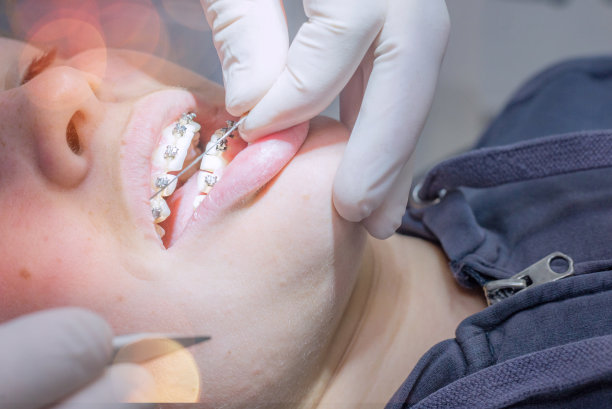Summary: Dental implantation is a sophisticated procedure that can significantly enhance a patients quality of life. This article focuses on essential precautions and guidelines that both patients and dental professionals should adhere to ensure successful dental implantation and a smooth recovery process. The discussion will cover four key aspects: patient assessment and preparation, surgical procedures and techniques, post-operative care and recovery, and the role of follow-up consultations. Each area is crucial in maximizing the chances of a successful outcome and minimizing potential complications, ultimately leading to lasting satisfaction for the patient.
1. Patient Assessment and Preparation

Before undergoing dental implantation, thorough patient assessment is imperative. This includes a comprehensive dental examination, medical history review, and diagnostic imaging to evaluate the jawbone quality and structure. Proper assessment helps to identify any pre-existing conditions, such as gum disease or insufficient bone density, which may complicate the procedure.
Additionally, patients are encouraged to discuss their expectations and any concerns with their dental professional. Setting realistic outcomes can significantly enhance satisfaction with the final results. This dialogue helps tailor the treatment plan to the patients specific needs, maximizing the chances of success.
Moreover, the importance of pre-surgical preparations cannot be overstated. Patients might be advised to stop smoking, limit alcohol consumption, and follow prescribed dietary modifications to improve their overall health and facilitate the healing process post-surgery.
2. Surgical Procedures and Techniques
The surgical procedure for dental implantation is pivotal in determining the success of the outcome. Utilizing advanced techniques such as guided implant surgery can enhance precision. This method enables the dentist to visualize the entire process, ensuring optimal placement of the implants, which leads to a better chance of osseointegration.
Furthermore, local anesthesia or sedation options should be adequately discussed before the procedure. This choice should align with the patients comfort level and anxiety management strategies. An adequately sedated patient is more likely to have a successful surgical experience.
Post-operative pain management is also an essential part of the surgical plan. Preparing a customized pain management protocol that includes medication and recommendations for managing discomfort can greatly influence recovery and overall patient satisfaction.
3. Post-Operative Care and Recovery
Post-operative care is crucial for successful healing following dental implantation. Patients should be instructed on how to care for the surgical site, including oral hygiene practices that do not disturb the implant area. It is vital to maintain cleanliness to prevent infection, which can jeopardize the entire process.
Moreover, dietary modifications are recommended during the initial recovery phase. Soft foods and adequate hydration help prevent any strain on the surgical site and foster healing. Avoiding hard, crunchy, or hot foods can prevent complications.
Monitoring for any signs of complications, such as excessive swelling or pain, is essential. Patients should have clear guidelines on when to contact their dental professional and follow any recommendations for post-operative visits for optimal healing.
4. The Role of Follow-Up Consultations
Follow-up consultations play a significant role in ensuring the success of dental implants. Regular check-ups allow dental professionals to monitor the healing process and detect any potential complications early on. These appointments enable dentists to assess osseointegration and make necessary adjustments if needed.
Education continues throughout the follow-up process. Patients should be counseled on proper oral hygiene practices and the importance of maintaining regular dental check-ups to ensure long-term success and functionality of the implants.
Additionally, establishing a long-term care plan contributes to the durability of dental implants. This plan may include lifestyle modifications and preventive care that help maintain overall dental health, which is crucial for the longevity of implants.
Summary:
Successful dental implantation procedures hinge on meticulous planning, execution, and follow-up. From patient assessment to attentive post-operative care, each step plays a crucial role in ensuring favorable outcomes. As such, both patients and dental practitioners have specific responsibilities to uphold throughout this journey.
This article is compiled by Vickong Dental and the content is for reference only
Vickong Dental
Vickong Dental is a large medical group established in Hong Kong in 2008 by professors from well-known medical universities in Guangdong and Hong Kong, as well as medical doctors from key national '985' universities (including Master's supervisors and senior professors). The chain of branches brings together expert dentists with PhDs and Master's degrees from Hong Kong and Mainland China, committed to providing high-quality dental treatment.
"Vickong Dental Practices the University Motto of 'Healing and Serving Society,' with a Stable Operation for Sixteen Years. It Has Been honored with Hong Kong Enterprise Leaders's Choice,' and is a Global Trusted Implant Center for the Nobel Implant System. Recommended by Hong Kong Metro Broadcast and Guangdong Television, it Serves Customers from Over Thirty Countries and Regions, Gaining the Trust and Favor of Citizens from the Guangdong-Hong Kong-Macau Greater Bay Area and Surrounding Cities.

Thousands of customers' unanimous praise
The most recognized and highly recommended dental service by customers in the Guangdong-Hong Kong-Macau Greater Bay Area
We Ensure You Receive Detailed Care and Attention Here
Hong Kong standards, Shenzhen prices, Your Trusted English-speaking dentists

Vickong Dental Medical-Grade Instrument Disinfection Process
Vickong Dental Medical-Grade Instrument Disinfection Process

Vickong Dental Chain: A Warm and Comfortable Environment for Treatment






Appointment Hours

Q&A
Why choose Vickong Dental?
Vickong Dental practices the university motto 「Medicine to Benefit Society」, with each branch bringing together highly qualified dentists with doctoral and master’s degrees from Hong Kong and the Mainland, and has maintained seventeen years of steady operation。Recipient of 「2024 Hong Kong Enterprise Leaders Brand」, 「2025 Hong Kong Enterprise Leaders Brand」, a Nobel Biocare Global Trusted Implant Center, and a brand recommended by Metro Radio Hong Kong and Guangdong TV。
To date, we have served customers from more than thirty countries and regions,earning exceptionally high word-of-mouth recognition and trusted recommendations from residents across the Guangdong-Hong Kong-Macao Greater Bay Area and surrounding cities
We have eight major branches in Zhuhai、Shenzhen,and a consultation and service assurance center in Hong Kong,so you can book a free consultation at any time for any questions,which is very reassuring.
If I do not accept the quotation after the CT scan, will I be charged??
No! As long as the actual treatment has not started, you will not be charged any fees.
Will there be any additional charges during the treatment process?
No, there won’t be any additional charges. Before treatment begins, we will clearly explain the treatment plan and its corresponding fees. Only after the patient agrees and signs the consent form will we proceed with the dental service.
Can I pay in Hong Kong dollars?
Yes. Vickong Dental accepts payment in Hong Kong dollars. The amount will be converted based on the exchange rate of the day, and the applicable rate will be clearly communicated to you in advance.
Can I reschedule my appointment at any time?
Yes. Please contact us via **WeChat** or **WhatsApp** as early as possible, providing your original appointment time and details, along with your preferred new date and time slot for rescheduling.













